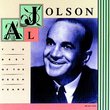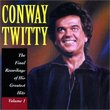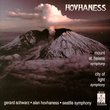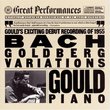| All Artists: Ludwig van Beethoven, Georg Solti, Chicago Symphony Orchestra, Vladimir Ashkenazy Title: Beethoven: The Piano Concertos Members Wishing: 0 Total Copies: 0 Label: Decca Release Date: 6/24/1997 Album Type: Box set Genre: Classical Styles: Forms & Genres, Concertos, Historical Periods, Classical (c.1770-1830), Instruments, Keyboard, Symphonies Number of Discs: 3 SwapaCD Credits: 3 UPC: 028944372328 |
Search - Ludwig van Beethoven, Georg Solti, Chicago Symphony Orchestra :: Beethoven: The Piano Concertos
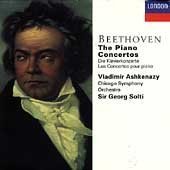 | Ludwig van Beethoven, Georg Solti, Chicago Symphony Orchestra Beethoven: The Piano Concertos Genre: Classical
Each of these performances has its own profile. The orchestra plays incisively in the First Concerto, but Ashkenazy's plush lyricism doesn't make a good match either with the orchestra or with the music, and he makes one w... more » |
Larger Image |
CD DetailsSynopsis
Amazon.com Each of these performances has its own profile. The orchestra plays incisively in the First Concerto, but Ashkenazy's plush lyricism doesn't make a good match either with the orchestra or with the music, and he makes one weird ritard in the first movement. The Second Concerto is uneventful, rather bland and pleasant. The Third Concerto seems to be the best performance of the lot, with dramatic playing by soloist and orchestra, but it's sabotaged by blurry recorded sound, the only serious problem with sound quality in the entire set. The Fourth Concerto is enlivened, at least intellectually, by Solti's approach, constantly revealing interesting unfamiliar details in the orchestral score. Ashkenazy's detachment makes this a frosty but fascinating experience. The "Emperor" is a good routine performance, nothing special. The Bagatelles aren't much of a bonus, since they're rather dully played. (Why not the "Choral" Fantasy?) There's nothing actively bad about this set, and it's reasonably priced. But Beethoven deserves better, and gets it from many performers, including the fascinating Uchida-Sanderling collaborations. --Leslie Gerber Similar CDsSimilarly Requested CDs
|
CD ReviewsUnsurpassed after a quarter century Stan Vernooy | Henderson, NV | 09/16/2001 (5 out of 5 stars) "This recording is not only the best set of the Beethoven Piano Concertos I know of, but also represents the peak performances in the history of Georg Solti and the Chicago Symphony. For some reason, after the mid-70s, Solti increasingly emphasized power at the expense of musicality, and the sound of the orchestra became more strident and astringent. But these performances, having all the power and excitement of the later Chicago Symphony recordings, also have warmth, love, and sweetness. Ashkenazy too was at his peak in these recordings. His later cycle, in Cleveland, lacks the bite and depth of involvement that you can find here.If you want a capsule summary of the performance philosophy of these performances, it is easy to describe: they are unapologetically romantic. In my opinion, the Third and Fourth concertos are particularly fine. Both Ashkenazy and Solti find exactly the right combination of power and beauty in both works, and the quality of the performances is further emphasized by the gorgeous sound. And speaking of sound, those who believe that a recording has to be DDD in order to have state-of-the-art sound need to listen to these recordings. The subsequent digital recordings of these works that I have heard are all comparatively cold and clinical.I consider it unfortunate that in the last 25 years music has been more of an intellectual or historical exercise than an emotional experience or an appreciation of beauty. But back in the 70s when this was recorded, Solti and Ashkenazy had not been infected by those negative trends.Looking at the individual concertos, I have a slight preference for Richter's recording of the First and the Serkin/Bernstein recording of the "Emperor" (Fifth). But if you want a complete set of outstanding performances of all five Beethoven concertos, I don't think there is another set that comes close to these." What is Ashkenazy up to? Prescott Cunningham Moore | 05/16/2004 (3 out of 5 stars) "After purchasing Ashkenazy's complete set of the Mozart concertos, I decided to get this one of the Beethoven concertos. Although some of the reviewers had voiced complaints about this set, I felt that it couldn't be that bad. Indeed, it's not that bad, but its not that good either.To me, it seems as if Ashkenazy has no sense of style. His approaches to these concertos are more lyrical and romantic rather than classical. Take the first, for example. Ashkenazy treats the piano line as if he were playing Chopin. Solti, on the other hand, seems to feel that louder is better. Thus we have a very bizarre dialogue between piano and orchestra in the C major concerto. The second isn't much better. Although Ashkenazy gives a much better reading, Solti again feels that the CSO must play as forcefully as possible. The concerto is rather bland in the first place and Ashkenazy's approach is nothing special. The third concerto is wonderfully played by both Ashkenazy and the CSO. Ashkenazy treatment of the piano line is more classical while Solti's boisterous approach actually works in this powerful work. However, poor recording conditions (the evident hiss in the background) ruin the largo. The G major concerto is the most interesting in the set. Solti's treatment of the orchestra accompaniment is quite inspired - this is Solti at his most tender. However, Ashkenazy's icy interpretation is detached, it seems as if he and Solti are on two entirely different pages. Although the recording is remarkable in its beauty, Ashkenazy's lack of warmth leaves a chilling cloud over the performance. The fifth is nothing special. Solti is back to being loud and Ashkenazy gives a good, routine performance.All in all, even at a budget price, this set is not highly recommended." Ashkenazy at his best? Višar Pįlsson (hb14@simnet.is) | Garšabęr, Iceland | 08/20/1999 (5 out of 5 stars) "As an admirer of these works I have listened to them in many versions. This set is highly recommendable and goes with Kempff/Leitner or Barenboim/Klemperer. No.1,2 and 5 are all well performed but the stars are 3 and 4. I guess that this recording of the 4th is the best I have ever heard (I must say though that I find the transfer to CD not as good as I would like it (I have it on LP)). In all the recordings of the Beethoven concertos I have heard I can always find something that I'd like better the other way but this recording of the 4th is an exception; in my mind it's flawless in every way."
|

 Track Listings (10) - Disc #1
Track Listings (10) - Disc #1![Mozart: The Piano Sonatas [Box Set]](https://nationalbookswap.com/cd//m/66/8566/6018566.jpg)

